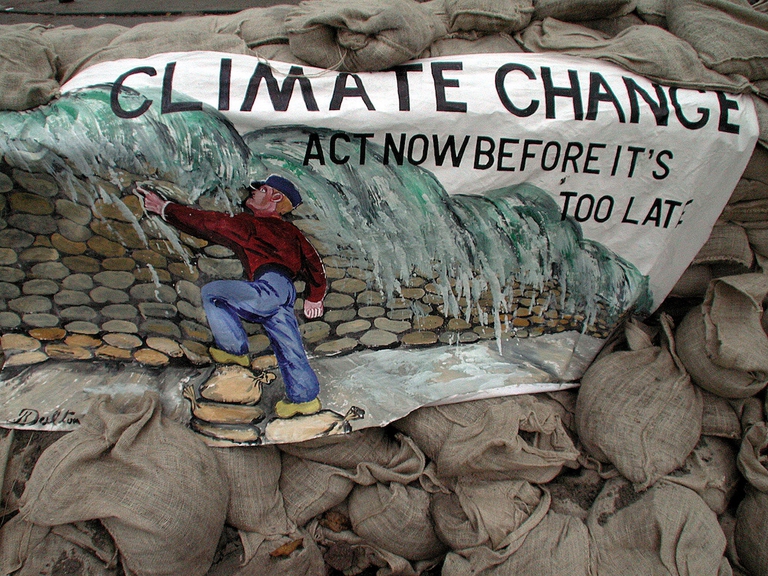
After a landslide led to twelve deaths on the island of Ischia, questions have been raised about the impacts of illegal building, tourism, and climate change.
If the whole world decides from now on to cut out meat and dairy products from its diet, more than 8 million lives would be saved by 2050, according to a study carried out by the University of Oxford. Moreover, it shows that the massive adoption of vegetarian or vegan diets – on a global level –
If the whole world decides from now on to cut out meat and dairy products from its diet, more than 8 million lives would be saved by 2050, according to a study carried out by the University of Oxford. Moreover, it shows that the massive adoption of vegetarian or vegan diets – on a global level – would allow to dramatically reduce CO2 emissions and save huge amounts of money.
The analysis has been carried out by a group of researchers of the Martin School, UK, and has been published in the American journal PNAS. “There is huge potential from a health perspective, an environmental perspective and an economic perspective, really,” said study author Marco Springmann.
Researchers have envisaged two different scenarios based on different food choices: the first one takes into consideration the current global food consumption, while the second one considers the recommended food consumption. Therefore, they verified the actual changes if everybody would go vegetarian or vegan.
A more balanced diet, with limited meat consumption in favour of fruit and vegetables, would be enough to save 5.1 million lives over the next 35 years. Such figure would rise to 7.3 million with a vegetarian diet, and to 8.1 million with a vegan diet.
There’s more: cutting down on meat – as explained by a recent study of the Chalmers University of Technology of Göteborg, Sweden – would allow significantly decrease greenhouse gases, contributing to slowing down climate change (which could jeopardise agricultural production, triggering a dramatic vicious circle).
According to the University of Oxford, a more balanced diet would be enough to cut the emissions linked to food production by 30 per cent. Such decrease could reach 63 and 70 per cent with a vegetarian or vegan diet respectively.
Both the climate and human health will be benefitted if the whole world carries out changes in food habits. Basically, scientists show that it is needed to increase fruit and vegetables consumption by 25 per cent and cut meat consumption by 56 per cent.
This would benefit all countries’ treasuries: the study estimates that – depending on different scenarios – 735 billion dollars to a trillion dollars could be saved every year, due to the fact that many therapies and treatments funded by national healthcare systems would be avoided.
Siamo anche su WhatsApp. Segui il canale ufficiale LifeGate per restare aggiornata, aggiornato sulle ultime notizie e sulle nostre attività.
![]()
Quest'opera è distribuita con Licenza Creative Commons Attribuzione - Non commerciale - Non opere derivate 4.0 Internazionale.
After a landslide led to twelve deaths on the island of Ischia, questions have been raised about the impacts of illegal building, tourism, and climate change.
Not much snow, peaks of 19 degrees Celsius in Norway and even 28 degrees in France: official data confirms the anomalously high temperatures of this past winter.
Ocean warming has risen to record highs over the last five years: just in 2019 the heat released into the world’s oceans was equivalent to that of 5-6 atomic bombs per second. The culprit, no doubt, is climate change.
What did Greta Thunberg tell participants at the 2020 World Economic Forum in Davos? Once again, the Swedish activist underlined the total lack of concrete solutions to the climate crisis presented by leaders so far.
The list of human and animal victims of the Australia wildfires keeps growing – one species might already have gone extinct – as the smoke even reaches South America.
Kivalina is located on a small island once guarded by sea ice, which is now melting due to global warming. While the sea threatens to wipe the village off the face of the Earth, its inhabitants refuse to give up their lives and traditions.
Thanks to activists, the voice of the world’s peoples resounded through the COP25 like an alarm bell. Governments didn’t reach the results they demanded, but their cries and messages were stronger than ever, reaching even those who weren’t in Madrid.
Climate change poses a risk for millions. However, women are the most vulnerable to its negative consequences: a few simple considerations by the Italian Climate Network help us perceive the global implications of this.
The COP25 ended two days late and with very few steps ahead made. Climate negotiations in 2020 will be an uphill battle as political will clearly seems to be lacking, once again.










